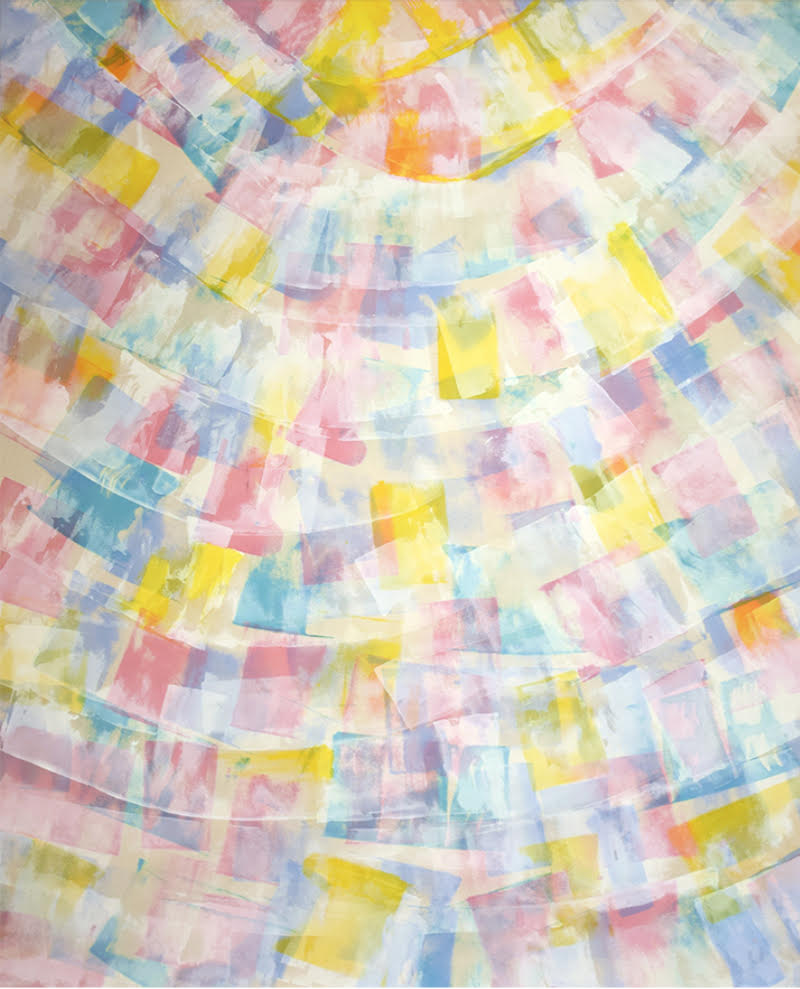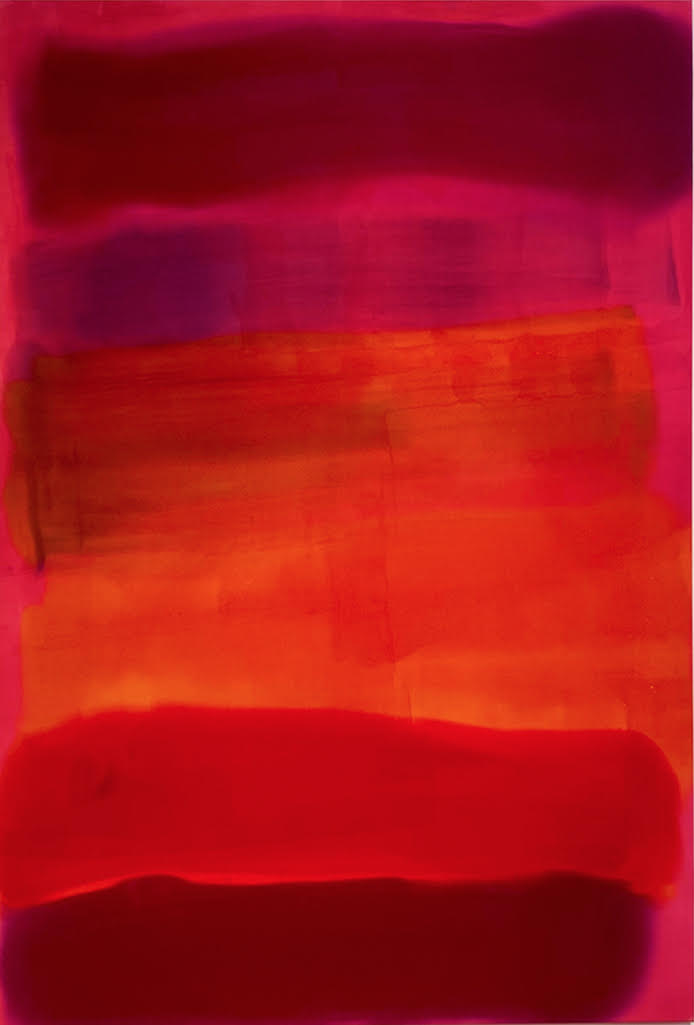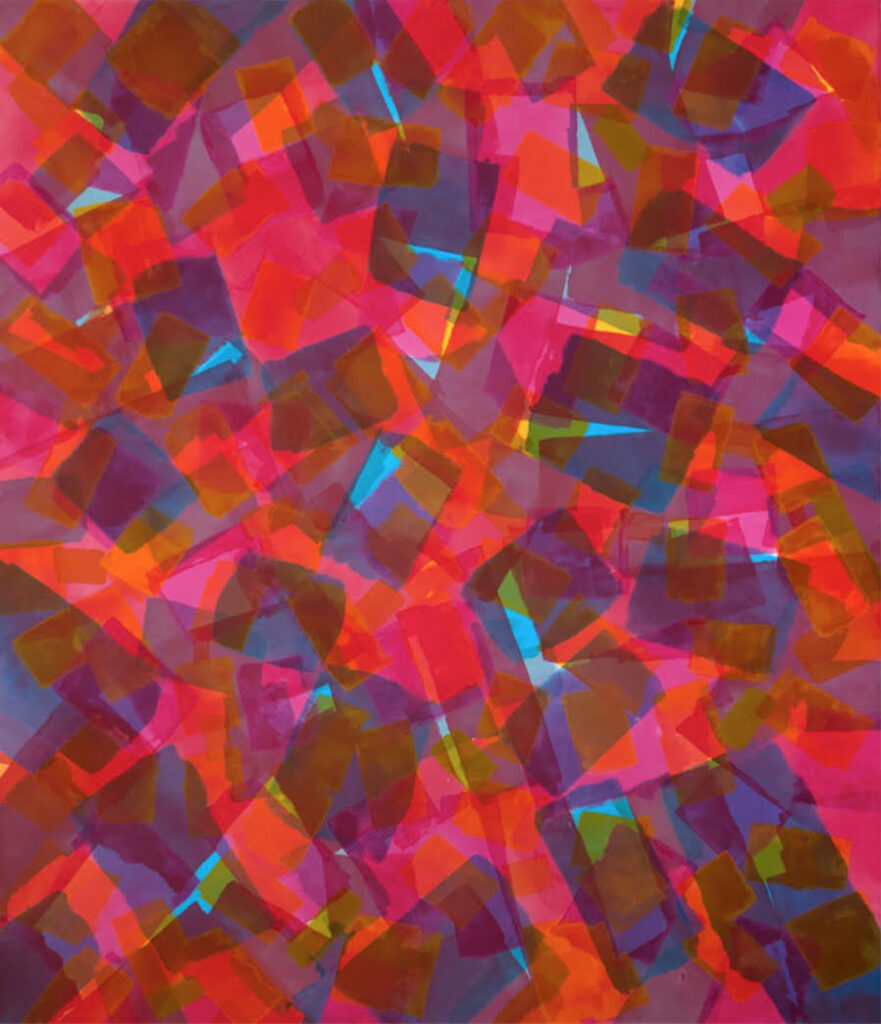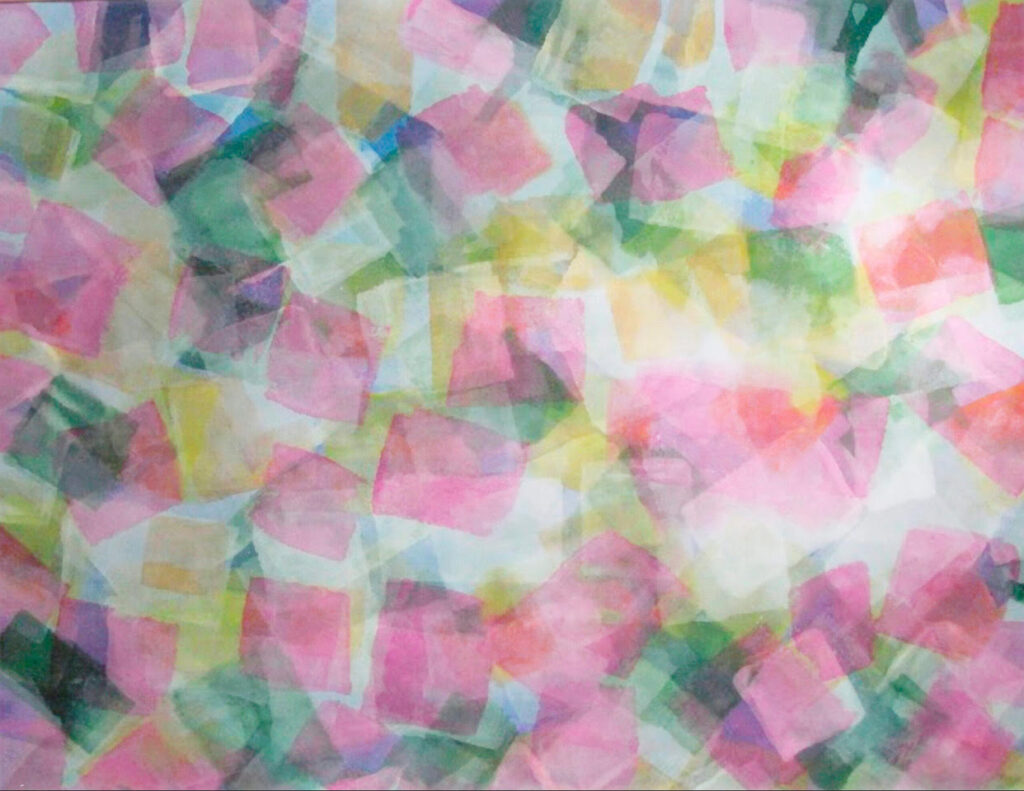Pedie Wolfond has preserved the most positive aspects of the Colour Field movement throughout a lengthy career. While the paint-soaked colour fields of Mark Rothko, arguably the movements most celebrated exponent, grew progressively darker by the 1960s. By contrast, rather than Rothko’s palette of “tragedy, ecstasy and doom” a radiant optimism exudes Wolfond’s most recent canvasses. A joy of paint and life infuse works like “Ascendance, Magic Memories, and Ocean Breeze.”
Ascendance, 2020, acrylic on raw canvas, 84.5 x 68 inches
In the 1960s, Colour Field artists such as Jack Bush and Julius Olitski were part of a shift away from the gestures of violence and angst of Jackson Pollock, adopting a “calmer” language – something akin to a colour gestalt. Riding on this wave, Wolfond’s washes of thin colour on unprimed canvas began to achieve a nuanced play that propelled the viewer toward the contemplative reflective. By the 1970s, the artist had mastered her technique of mixing acrylic paints with water and clear medium to personalize the pigmentation with new expressive potential. The pearly texture of canvas was retained to imbue its colouration with shimmering translucence and depth.
Passion, 2024, acrylic on raw canvas, 70.5 x 47.5 inches
Particularly magnetic are Wolfond’s red works. As Gary Michael Dault observed, “Red, especially the red that Wolfond sluices and veils into her big, absorbing canvases, burns with an optical intensity from which there can be little escape, an intensity that cannot be softened, subdued, avoided or deferred.” Wolfond’s 2024 “Passion” inlays Rothko ecstasy without its sense of impending doom. Her “Carnival in Rio” (2011) pulsates with life. The painting is less viewed than entered.
Carnival in Rio, 2011, acrylic on raw canvas, 104 x 87 inches
“The Song of Summer” (2000) features multiple layers of Wolfond’s signature soft, floating tiles – an airy dissolve of warm and cool. Entirely abstract, the painting tugs at the viewer for morsels of figuration in a way that the reading of Rorschach inkblots raids a subject’s psyche for personally emotive plot lines. In that respect “The Song of Summer” is not only a tool for self-reflection, but a possible psychological balm. It’s here that we arrive at the fundamental positivity of Wolfond’s art. While her red “Passion” painting may have suggested a blazing end of a day, “The Song of Summer” left the door open for a dawn to the next.
Song of Summer, 2000, acrylic on raw canvas, 72.5 x 98 inches
Steve Rockwell
Images are courtesy of Lonsdale Gallery.
*Exhibition information: Pedie Wolfond, A Journey Through Time, September 7 – October 18, 2024, Lonsdale Gallery, 410 Spadina Road, Toronto. Gallery hours: Wed – Sat 11 am – 5 pm.




